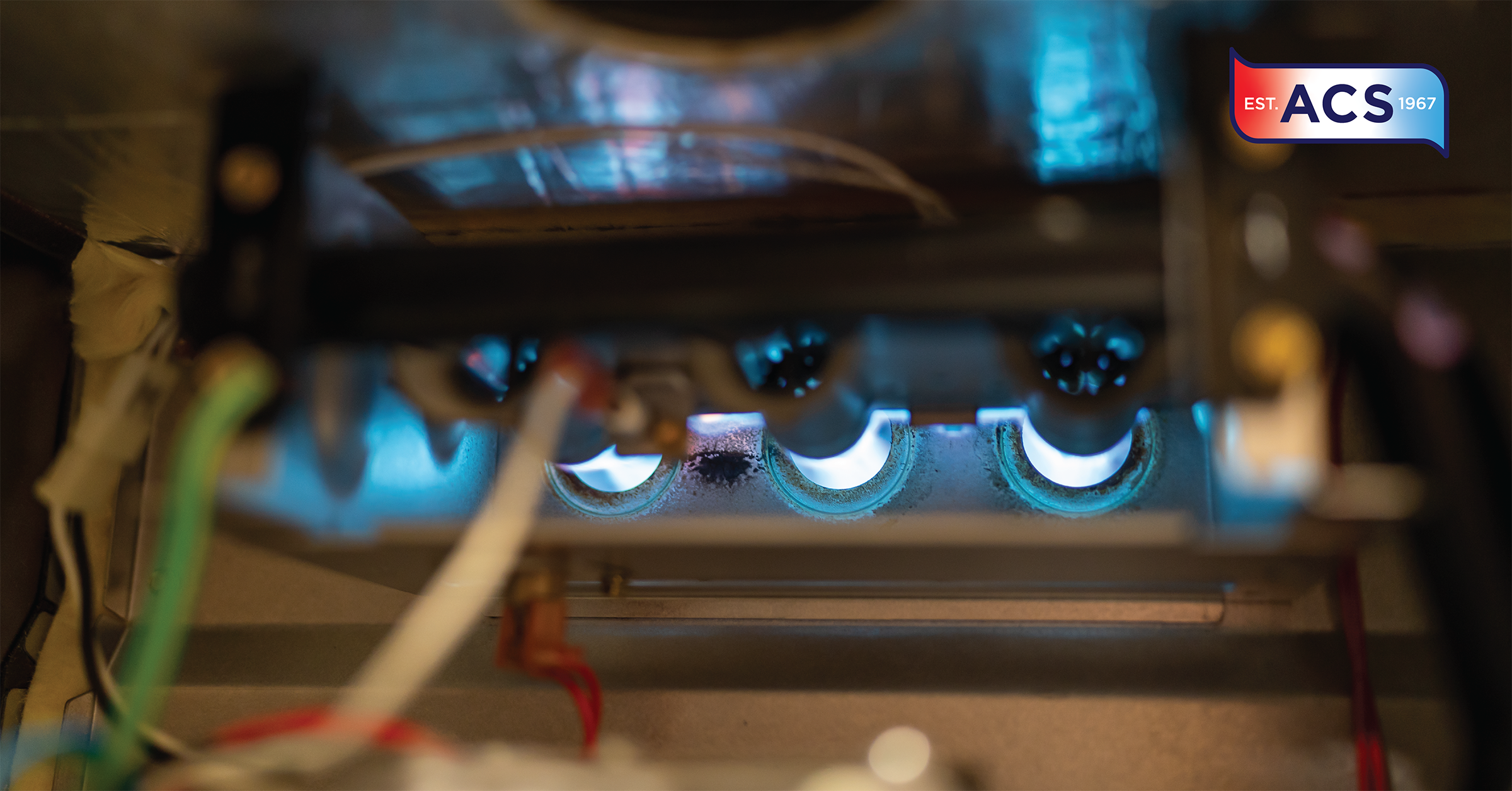With winter right around the corner, it’s time to start thinking about your home heating system. If your current furnace is over 15 years old, you’ll want to consider replacing it with an updated, more efficient model. And when it comes to furnaces, you have many options to choose from.
Furnaces come in two basic models: gas and electric. But how do you know which is right for you? At ACS, we offer high-quality heating services and exclusive industry insight to help you choose the right furnace for your home. But before we pay you a visit, let’s look at the fundamental differences between gas and electric furnaces.
How Do Furnaces Work?
Whether gas or electric, furnaces operate using a thermostat. When your indoor temperature drops below the set heat point on your thermostat, a signal is sent to your furnace unit. Once your furnace receives this signal, the system’s blower forces heat through your air vents
For gas furnaces, these thermostat signals trigger your system’s pilot light and ignite the main burner of your unit’s heat exchanger. The heat exchanger draws energy from the main burner and heats the air circulating throughout your space. An electric furnace follows the same process, except with an electrical ignition system.
Both gas and electric furnaces use ductwork to distribute air. A system blower forces heat through the air ducts, which then travels to various areas of your home. As this occurs, cooler air is absorbed through your vents to return to the furnace.
Electric vs. Gas: Pros and Cons
While electric and gas furnaces are similar in how they operate, each type has its own set of pros and cons. Before you decide which model is best for you, evaluating each furnace’s costs, efficiency, and overall comfort is essential.
Lifespan
If you’re planning to keep your next furnace for the long haul, you’ll want to opt for an electric system. Most electric systems last up to 30 years, while their gas counterparts only last 10 to 20 years. Gas furnaces tend to wear out faster, even if you regularly service and repair them. Because their burners quickly accumulate buildup, gas furnaces can often fail if not cleaned and inspected regularly.
Energy Efficiency
When it comes to energy efficiency, gas furnaces take the cake. Gas systems use less energy than electric furnaces to heat the same amount of space. Not to mention, they also are much quicker to circulate heat. Electric furnaces take much longer to generate heat, especially in colder climates. If your area often experiences cool weather, a gas furnace will warm your space faster with better-quality heat.
Cost
Electric furnaces tend to be the cheaper option of the two systems, especially regarding initial costs and installation. Gas furnaces have combustive components that require expensive and thorough installations, while electric furnaces are a lower up-front investment. Gas furnaces also require more upkeep, resulting in additional maintenance and repair expenses. However, it is also important to consider that the cost of electric power can be steep. Therefore, gas furnace owners could earn back their money over time because they’ll have lower energy bills month-to-month.
Safety
Safety plays a huge role in the decision to install a new furnace, and between the two options: electric furnaces win. Gas systems operate using fuel combustion, which produces carbon monoxide. If your gas system has a leak in its heat exchanger, your household is at risk of carbon monoxide exposure. For this reason, you must regularly service your gas furnace to prevent potential safety hazards.
Noise
Electric furnaces are typically quieter than gas systems. Gas furnaces have more complex designs which commonly produce louder noises as they operate. Meanwhile, the simplicity of electric furnaces allows them to be much quieter systems overall.
Which Furnace is Right for You?
There’s no right or wrong answer when choosing a furnace. While both gas and electric furnaces have their benefits and drawbacks, what matters most is that you get good, quality heating when you need it.
If you’re searching for professional heating services, you can count on ACS to deliver nothing but the best. With decades of industry experience, our HVAC-certified technicians are equipped to help you beat the heat all year long! Contact our team today for premium heating repair and installation in Covington, Milledgeville, and surrounding areas.


